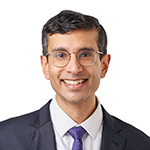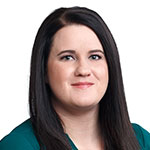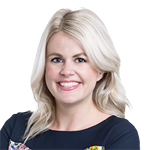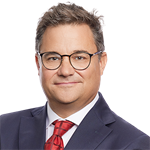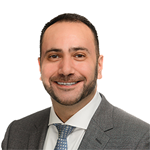
Apply now
How to apply
Please see each office's preferred method of application, along with timelines and who to contact. Unless there are extenuating circumstances, all applications must be submitted through the viRecruit portal. If you have any questions about your application, please reach out to the listed contact.
Vancouver
We accept applications for our second-year summer program and for our full articling program for graduates in accordance with the Vancouver Bar Association Guidelines. Foreign-trained or NCA students are welcome to apply through either of these intakes, but please note that before starting articles the Law Society of British Columbia requires that you first have your NCA Certificate of Qualification.
Please note that, unless there are extenuating circumstances, all applications must be submitted through the viRecruit portal. Submissions must include a cover letter (addressed to Robert Hanson, Legal Talent Associate Director), résumé and a copy of official post-secondary transcripts (undergraduate and law school). You may also submit letters of reference and/or additional information, if you wish.
Calgary
Applications for 2025 1styear summer student positions will be accepted through the viDesktop law portal beginning in January, 2025.
Please send a copy of your law school, graduate (if applicable) and undergraduate transcripts, a cover letter and résumé through the viPortal when it becomes available. Your application can be addressed to:
Dominique Carrier-Robb
Legal Talent Director
Norton Rose Fulbright Canada LLP
Suite 3700
400 3rd Avenue SW
Calgary, Alberta T2P 4H2
Email: dominique.carrier-robb@nortonrosefulbright.com
Toronto
We accept applications for second-year summer student positions in accordance with the rules set out by the Law Society of Ontario (LSO). Please visit the LSO website and/or speak with your Career Services Office for more information. Please submit your cover letter, résumé, all post-secondary transcripts and a list of upper-year courses through the viPortal. Your application should be addressed to:
Saba Samanian
Legal Talent Assistant Director
Norton Rose Fulbright Canada LLP
222 Bay Street, Suite 3000
P.O. Box 53
Toronto, Ontario
M5K 1E7
E-mail: saba.samanian@nortonrosefulbright.com
Articling students
We are not currently accepting applications for articling positions in our Toronto office.
Ottawa
In Ottawa, a group of summer employers agree on interview procedures. Check with your Career Services Office for all of the key dates for the 2L recruitment process. Please send a copy of your law school, graduate (if applicable) and undergraduate transcripts, a cover letter and résumé through the viPortal when it becomes available. Your application can be addressed to:
Saba Samanian
Legal Talent Assistant Director
Norton Rose Fulbright Canada LLP
99 Bank Street
Suite 500
Ottawa, Ontario K1P 6B9
Phone: +1 416.216.2986
E-mail: saba.samanian@nortonrosefulbright.com
Articling students
We are not currently accepting applications for articling positions in our Ottawa office.
Montréal
Apply during the Articling Recruitment Period
Pursuant to the Recruitment Agreement, if you wish to apply to our Montréal office during the next articling recruitment period (course aux stages), we ask that you do so by submitting your application via the viRecruit portal following the link provided below, between 9:00 a.m. on Friday, January 31, 2025 and 5:00 p.m. on Monday, February 3, 2025. We kindly ask you to submit your request to the attention of Audrey Ann Houle, Legal Talent Assistant Director. The user instructions for each university are available from the Career Development Office (CDO) of your university faculty. The universities participating in this service are the Université Laval, the Université de Montréal, McGill University, the Université de Sherbrooke, the University of Ottawa and the Université du Québec à Montréal (UQAM).
We are also offering technical advisor or patent agent in training summer positions to first-year students who are interested in the field of intellectual property and who obtained, prior to starting law school, a bachelor's, master's or doctoral degree in a pure or applied sciences program.
Your application must include only:
- A cover letter addressed to Audrey Ann Houle;
- Your résumé including your contact information;
- Transcripts (undergraduate, graduate, etc.).
Québec
Apply during the Articling Recruitment Period
Pursuant to the Recruitment Agreement, if you wish to apply to our Quebec city office during the next articling recruitment period (course aux stages), we ask that you do so by submitting your application via the viRecruit portal following the link provided below, etween 9:00 a.m. on Friday, January 31, 2025 and 5:00 p.m. on Monday, February 3, 2025. We kindly ask you to submit your request to the attention of Anthonie Crawford, Legal Talent Manager. The user instructions for submitting your candidacy for each university are available from the Career Development Office (CDO) of your university faculty. The universities participating in this service are Université Laval, Université de Montréal, McGill University, Université de Sherbrooke, University of Ottawa and UQAM.
Your application must include:
- A cover letter addressed to Anthonie Crawford;
- Your résumé including your contact information;
- Transcripts (undergraduate, graduate, etc.).
Watch: Application and interview tips
Video Details
Our student recruitment team
The members of our Student Recruitment Team are there to support you throughout your career at Norton Rose Fulbright, both as a student and as an articling student. Along with all the lawyers in our practice, they will ensure your integration, will give you feedback on the work you complete and will make sure that you receive all the necessary training. The practice's broad practice will give you the opportunity to explore the different areas that interest you. The experience you will acquire will provide you with the necessary knowledge and tools to become successful professionals and to serve clients both locally and globally. You will be part of one of the leading international legal practices that serves some of the largest and most successful corporations in Canada and around the globe. We await your application!
If you have any questions, please do not hesitate to contact any one of them directly.
Vancouver

|
Robert Hanson |
|
|
Taryn Mackie |
|
|
Michael Manhas |
|
|
Brad G. Sollis |
Calgary
Toronto

|
Lynn Thomson |
|
|
Saba Samanian |
|
|
Heidi Reinhart |
|
|
Daniel Daniele |
|
|
Jennifer Hodgins |
|
|
Evelyn Li |
|
|
Andrew McCoomb |
|
|
|
|
|
Trevor Zeyl |
Ottawa
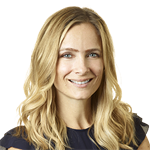
|
Lynn Thomson |
|
|
Saba Samanian |

|
Stephen Nattrass |
|
|
Brittany Hinds |

|
Jean-Simon Schoenholz |
|
|
Joshua Sprague |
Montréal
Québec
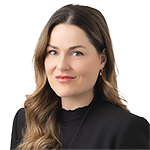
|
Anthonie Crawford |
|
|
Jean-Sébastien Cloutier |
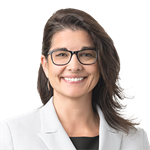
|
Élif Oral |



